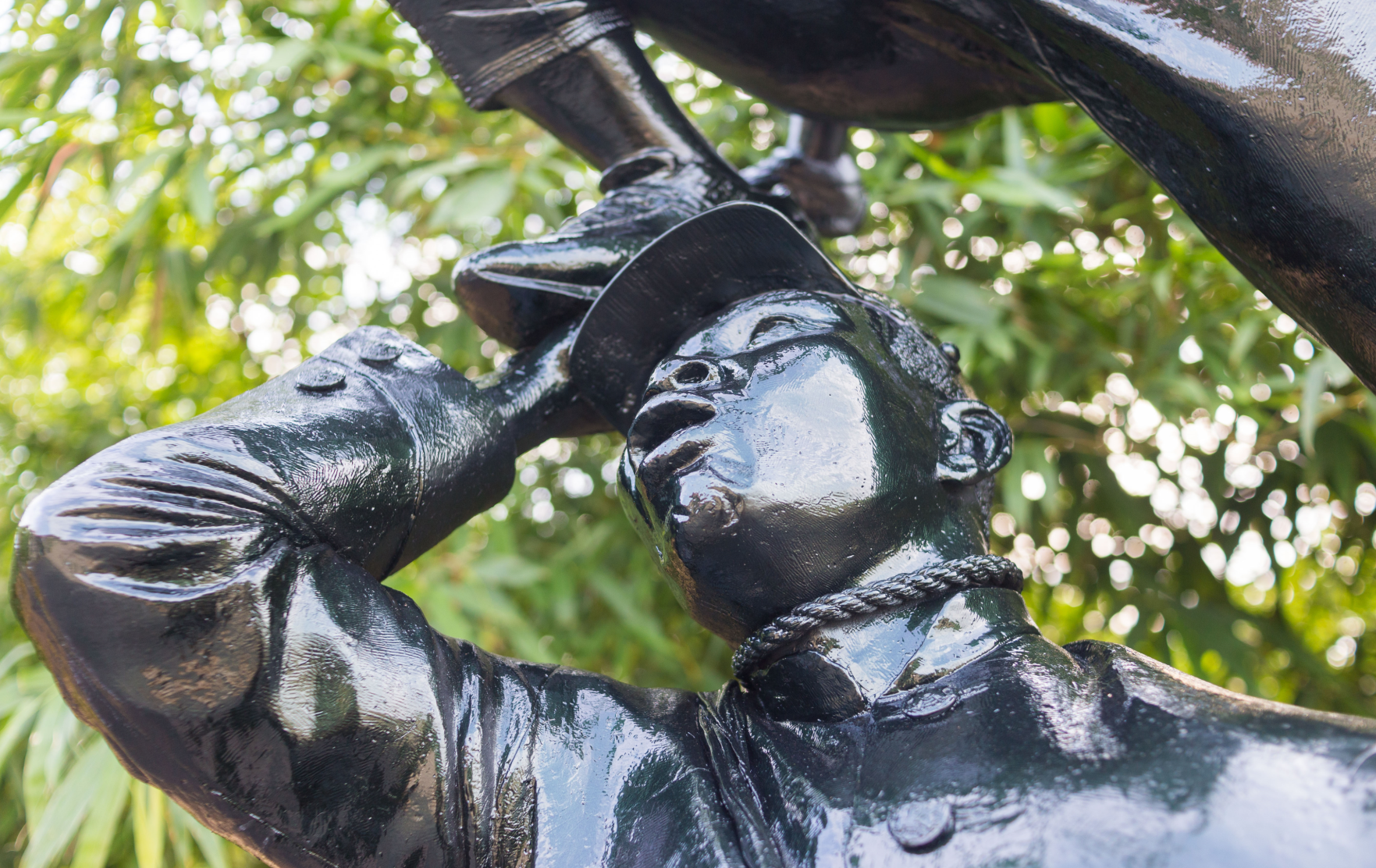
My family roots in Texas date back to 1837, when the Lone Star State was the Republic of Texas. One of my fourth great-grandfathers, Joseph Thompson, registered to vote on Aug. 1, 1867 and reported he had been in Brazoria for 30 years.
He was married to Martha Brooks, who, according to the 1880 census, was born in 1840 in Texas. Martha’s parents’ reported place of birth was the continent of Africa.
Thus my children are eighth-generation Texans with African roots — and Texas is our home.
Like any old house, the wear and tear of time require repairs, and ours is in significant need. We are the listed deed owners and are responsible for getting the work done.
I’m not interested in doing a teardown. And I’m certainly not interested in selling.
On the contrary, my interest is to repair and renovate — shining a light on the actual history and telling a more complete American story.
The good news?
Our story has good bones, and this path forward will allow people of all colors and stripes to better understand our cultural history and the perspectives of others — a truly American story; And an opportunity to evolve and move forward.
My African ancestors did not seek Texas as immigrants looking for opportunities. Rather, they were forced from their homeland in chains by unscrupulous traders, shipped to a foreign place and sold into slavery.
But we cannot undo the past. What is done is done.
However, future generations need not continue to be complicit. Viewing the United States through a lens of a more complete history is not about casting shame or guilt.
It’s about allowing reasonable men and women to learn from successes and failures, helping to illuminate a dark past and creating a brighter path for everyone.
So, back to our old house.
When repairing our house, some areas need more attention and resources than others. For example, the cost of fixing a roof, plumbing, electrical and foundation will differ. And a house needs a comprehensive inspection before it can be fixed. We need a plan and we can’t simply allocate 25 percent of our total renovation budget to these four areas.
Both opportunity and actual costs are rapidly increasing, and, if we continue to wait, it’s possible that this old house could fall before it can be fixed.
We should invest publicly, privately, and philanthropically in policies and practices that afford a better future for all Texans and Americans — educating the next generation of professionals and tradespeople for an economy in transition, while supporting urban and rural communities and the infrastructure and services we depend on.
If not us, then who?
Again, part of the repair work is correcting the narrative and filling in the cracks of our foundation.
Instead of removing or tearing down monuments, we should be working to make more available to teach our entire history.
In November 2022, I had an opportunity to travel to Accra, Ghana, where I met with Kwame Akoto-Bamfo, a renowned artist who created the Blank Slate Monument.
The Nia Cultural Center funded the Blank Slate Monument’s final stop of its U.S. tour in Galveston. Now through July 5, I invite you to visit this work of art — an awe-inspiring visual art form that honors, uplifts, and celebrates the voiceless, challenging us to seek a deeper understanding of our American story.
In a political climate where so many are being lulled to sleep, hibernating in the silos of their same opinion, I encourage you to stay awake.
By being woke, you don’t just dream about how things should be. You work together to make things better.
We sleep to get rest, but we awaken to do what we dream about.
I encourage my fellow Texans and Americans to wake up — it’s time to fix our old house.

NEWS
Hide Full Index
Show Full Index
View All News